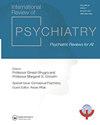A psychobiographical analysis of Empress Dowager Cixi: exploring the femininity castrated complex
IF 3.7
4区 医学
Q1 PSYCHIATRY
引用次数: 0
Abstract
AbstractIn Chinese culture, there is a widely circulated phrase, ‘A hen crows in the morning’. This phrase is used to humiliate women who steal power and engage in the political field. It demonstrates the complicated relationship between women and power in the context of Chinese culture. Women are not completely excluded from the politics, but women in power are often stigmatised. This study explores the life of Empress Dowager Cixi (1835–1908), the last female dominator in Chinese history, takes psychobiography as the research method, and attempts to understand the complicated relationship between women and power in Chinese culture through analysing Cixi’s life from the perspective of complex and cultural complex theory which originated with C.G. Jung and analytical theory. The research findings show that humiliating and suppressing women with political talent can trigger their complexes, both personal and cultural. This study attempts to propose the femininity castrated complex to better describe the conscious and unconscious psychological dynamics impacting on women within patriarchal, political Chinese culture. This complex further relates to (1) denying her biological sex in order to avoid accusations of superego and, (2) the relationship with her son who is not only her son, but also her enemy regarding (political) power.Keywords: Psychobiographyfeminismchinanarrative analysiswomen leadershippolitics Conflicts of interestNo potential conflict of interest was reported by the authors.Notes1 This was a peasant uprising that swept through half of the Qing Dynasty (Sheng, Citation1998).2 Although the United States did not invade China by force, the politicians demanded equal benefits and status like Britain, France, and Russia (Sheng, Citation1998).3 The Boxer Rebellion was an anti-imperialist and patriotic movement driven by a secret society in China, the ‘boxers’, involving a wide range of peasant groups in the Qing Dynasty from 1899 to 1902. It was an uprise against foreigners in China and the spread of Western and Japanese political and economic influences (NAM, Citation2023).4 Emperor Tongzhi’s father was Emperor Xianfeng, and his mother was Empress Dowager Cixi.5 Non-WEIRD contexts are contexts which are non-Western, non-educated, non-industrialized, non-rich and non-democratic (see Mayer et al., 2013).6 This is the name of the official. The management region is wealthy, therefore this official post has great importance and influence. The fact that Huizheng was given this position demonstrates that the Daoguang Emperor trusted him strongly (徐彻, 2012, p. 25).7 Concubine Yi is an imperial concubine of the fourth rank.8 Emperor Wu of the Han Dynasty passed on his throne to the son of Lady Gouyi, but the son was young at that time. Emperor Wu of the Han Dynasty was worried that Lady Gouyi would control the government, so he gave Lady Gouyi the death.9 The rightful wife of Emperor Xianfeng.10 The brothers of Emperor Xianfeng.11 In China, there is a proverb that states that a man should expect his son to be a dragon and his daughter to be a phoenix. This proverb captures the many expectations parents have for their kids. Typically, they anticipate that their males will succeed in their occupations and that their daughters will be noble and dignified.慈禧太后的心理传记分析:女性阉割情结探析
在中国文化中,有一个广为流传的说法,“母鸡晨啼”。这句话是用来羞辱那些窃取权力并参与政治领域的女性。它展示了中国文化背景下女性与权力的复杂关系。女性并不是完全被排除在政治之外,但掌权的女性往往被污名化。本研究以心理传记为研究方法,探讨中国历史上最后一位女性统治者慈禧太后(1835-1908)的生平,试图从荣格的情结和文化情结理论出发,从分析理论的角度分析慈禧太后的生平,来理解中国文化中女性与权力的复杂关系。研究结果表明,羞辱和压制有政治才能的女性会引发她们的个人和文化情结。本研究试图提出女性特质阉割情结,以更好地描述中国男权政治文化中影响女性的有意识和无意识的心理动力。这种情结进一步涉及到(1)为了避免超我的指责而否认她的生理性别,(2)与她的儿子的关系,他不仅是她的儿子,也是她在(政治)权力方面的敌人。关键词:心理传记女性主义机制叙事分析女性领导政治利益冲突作者未发现潜在的利益冲突注1这是一场席卷了半个清朝的农民起义(盛,Citation1998)虽然美国没有武力入侵中国,但政治家们要求与英、法、俄一样的利益和地位平等(Sheng, Citation1998)义和团运动是1899年至1902年由中国的一个秘密团体“义和团”发起的一场反帝爱国运动,涉及广泛的清朝农民团体。这是一场反对外国人在中国的起义,也是西方和日本政治经济影响的蔓延(NAM, Citation2023)同治皇帝的父亲是咸丰皇帝,母亲是慈禧太后。5 Non-WEIRD语境是指非西方的、没有受过教育的、没有工业化的、不富裕的、不民主的语境(参见Mayer et al., 2013)这是那位官员的名字。管理地区比较富裕,因此这一官职具有很大的重要性和影响力。惠政被授予这个职位,说明道光帝对他非常信任(《徽宗,2012》,第25页)乙贵妃是皇上的第四位贵妃汉武帝把王位传给了勾仪夫人的儿子,但这个儿子当时还很年轻。汉武帝担心勾仪夫人会控制政府,所以他给了勾仪夫人的死咸丰皇帝的合法妻子咸丰皇帝的兄弟在中国,有句谚语说,儿子是龙,女儿是凤凰。这句谚语抓住了父母对孩子的许多期望。一般来说,他们期望自己的儿子在事业上取得成功,希望自己的女儿高贵而有尊严。
本文章由计算机程序翻译,如有差异,请以英文原文为准。
求助全文
约1分钟内获得全文
求助全文
来源期刊

International Review of Psychiatry
PSYCHIATRY-
CiteScore
5.10
自引率
0.00%
发文量
85
期刊介绍:
The International Review of Psychiatry is the premier review journal in the field with a truly international authorship and readership. Each bimonthly issue is dedicated to a specific theme relevant to psychiatry, edited by recognized experts on the topic, who are selected by the Editors and the Editorial Board. Each issue provides in-depth, scholarly reviews of the topic in focus. The Journal reaches a broad international readership including clinicians, academics, educators, and researchers who wish to remain up-to-date with recent and rapid developments in various fields of psychiatry. It aims to be of value to trainees by choosing topics of relevance to career development, which are also suitable for clinicians for continuing professional development.
 求助内容:
求助内容: 应助结果提醒方式:
应助结果提醒方式:


